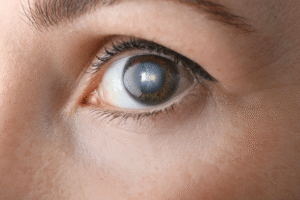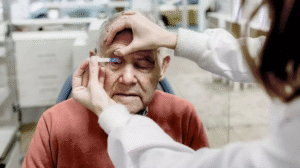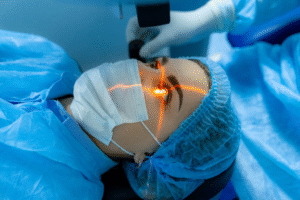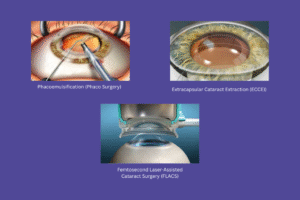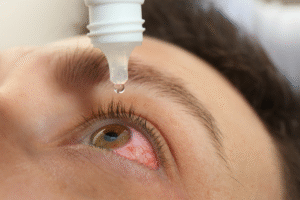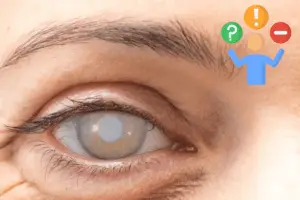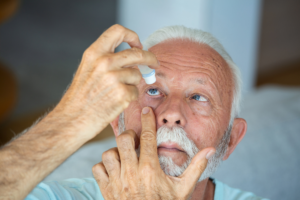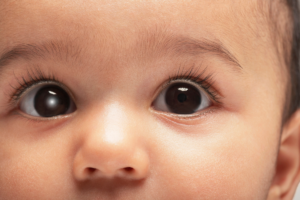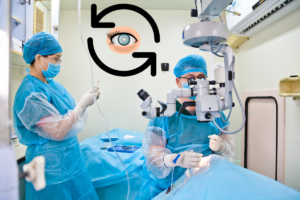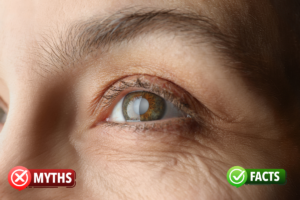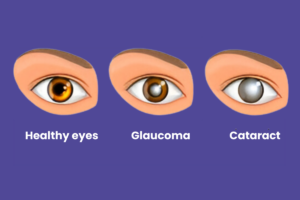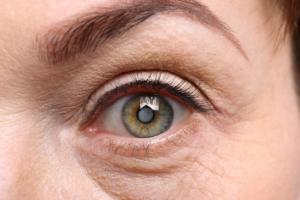Dry eyes after cataract surgery: What you need to know
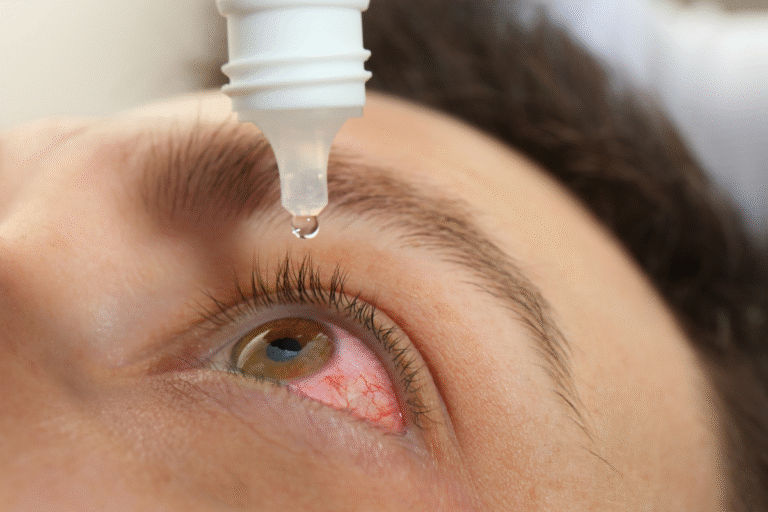
Cataract surgery is a highly effective and commonly performed procedure to restore vision. However, many patients experience a temporary side effect afterward — dry eyes. While it’s typically short-term, the discomfort can affect recovery and quality of life if not managed properly.
In this blog, we explain why dry eyes occur after cataract surgery, how long it lasts, ways to manage the symptoms, and when to seek further medical help.
Table of Contents
ToggleWhat causes dry eyes after cataract surgery?
There are several reasons why you might experience dryness or irritation after cataract surgery:
1. Temporary disruption of the tear film
Cataract surgery may disturb the tear film — the thin layer of moisture on the eye’s surface — leading to faster evaporation and dry eye symptoms.
2. Corneal nerve sensitivity
The surgical incision can temporarily affect corneal nerves that help signal the eyes to produce tears. This can lead to reduced tear production.
3. Use of medicated eye drops
Anti-inflammatory or antibiotic drops prescribed after surgery may contain preservatives, which can worsen dryness in some individuals.
4. Pre-existing dry eye condition
If you had mild or undiagnosed dry eyes before surgery, the condition can become more noticeable postoperatively.
Common symptoms of post-surgery dry eye
- Burning or stinging sensation in the eyes.
- Gritty or sandy feeling.
- Blurred vision that improves with blinking.
- Redness and mild swelling.
- Increased light sensitivity.
- Excessive watering (a paradoxical reaction to dryness).
How long does it last?
For most patients:
- Symptoms start within a few days after surgery.
- Peak discomfort occurs during the first 1 to 2 weeks.
- Improvement is generally seen within 1 to 3 months.
Patients with prior dry eye disease may need a longer recovery period or continued treatment.
How to relieve dry eyes after cataract surgery?
1. Use preservative-free artificial tears
These help keep the eye surface moist and reduce irritation. Always follow your eye specialist’s recommendations.
2. Stick to your post-operative medication plan
Even if your eyes feel dry, do not skip prescribed medications. Inform your doctor if they worsen your symptoms—they may adjust the type of drops used.
3. Limit screen time
Staring at screens for long periods reduces your blink rate, which worsens dryness. Take regular breaks and blink often.
4. Apply a warm compress
A clean, warm compress on closed eyes can help stimulate the glands that produce tear components.
5. Use a humidifier
Increasing humidity in your living space can prevent your tear film from evaporating quickly, especially in air-conditioned or heated rooms.
When to see a doctor?
You should consult your ophthalmologist if:
- Symptoms worsen or do not improve after 4–6 weeks.
- You experience severe burning, redness, or light sensitivity.
- Your vision becomes increasingly blurry despite blinking.
- There is no discharge, pain, or signs of infection.
Conclusion
Dry eye after cataract surgery is a common and manageable condition. Most people experience relief with proper care, eye drops, and lifestyle adjustments. If symptoms persist, it’s important to get evaluated for long-term solutions.
At Krisha Eye Hospital, Ahmedabad, we offer comprehensive pre- and post-operative care to ensure a smooth recovery and improved visual clarity.
To consult our expert cataract surgeon Dr. Dhwani Maheshwari, book your appointment at Krisha Eye Hospital.
Author bio
Dr. Dhwani Maheshwari, an esteemed ophthalmologist with over 10 years of experience, leads Krisha Eye hospital in Ahmedabad with a commitment to advanced, patient-centered eye care. Specializing in cataract and refractive surgery, Dr. Maheshwari has performed more than a thousand successful surgeries. Her expertise lies in phacoemulsification, a technique recognized for its precision in cataract treatment.
Dr. Maheshwari’s educational journey includes an MBBS from Smt. NHL MMC, a DOMS from M & J Institute of Ophthalmology, and a DNB in Ophthalmology from Mahatme Eye Bank Eye Hospital, Nagpur. She also completed a fellowship in phacoemulsification at Porecha Blindness Trust Hospital, further enhancing her surgical skills. In addition to her work at Krisha Eye Hospital, Dr. Maheshwari serves as a consultant ophthalmologist at Northstar Diagnostic Centre.
Under her leadership, Krisha Eye Hospital aims to bring all superspecialties under one roof, offering comprehensive eye care solutions for all vision needs.
FAQs
Yes. It is a common and temporary condition that affects many patients due to surgical changes and the healing process.
Yes. Severe dry eyes can blur vision and delay healing. Proper management ensures better surgical outcomes and clearer vision.
In most cases, yes. Symptoms improve within a few weeks to a couple of months. Persistent dryness should be evaluated by an eye care provider.
Yes, but only preservative-free artificial tears. Avoid drops with redness reducers or preservatives unless advised by your doctor.
Yes. Options include prescription eye drops, punctal plugs, warm compresses, omega-3 supplements, and managing underlying conditions like blepharitis.
Older adults are more likely to experience dry eyes, as tear production naturally decreases with age. Cataract surgery can temporarily increase dryness in this group.
If dry eye is moderate to severe, your eye specialist may recommend treating the dry eye condition first to optimize surgical outcomes.
Mild discomfort, burning, or gritty sensations are common. However, persistent pain, visual disturbances, or discharge should be reported to your doctor immediately.


